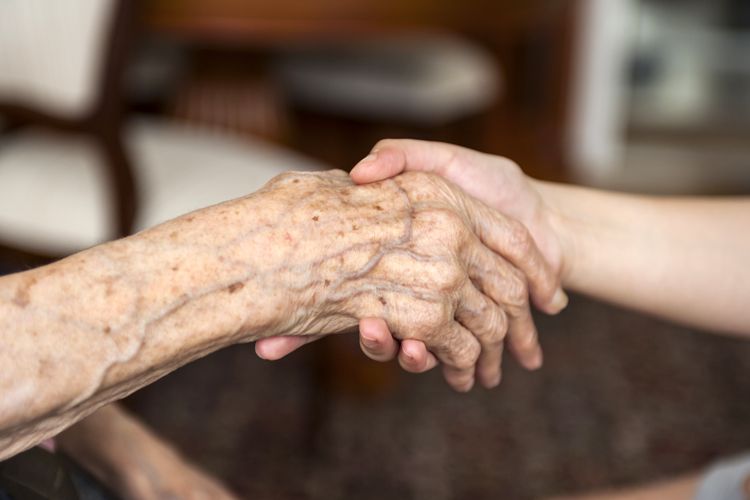A Caregiver's Identity Crisis
If you've even watched someone struggle with a serious illness, then you know about the identity crisis that strikes when someone becomes sick.

Like patients, caregivers too must cope with forces that put pressure on their identities.
A serious diagnosis ushers in a tidal wave of new responsibilities, limitations, and priorities for a patient as well as a patient's caregiver. Caregivers are forced to bend and adapt in unfamiliar ways—ways that often force them to change their very natures.
I'll never forget the day when the figurative baton of power and decision-making passed from my mother to me. She was hospitalized at Georgetown University Medical Center due to a chemo-induced infection. Up to that point, my mother still made final decisions for our single-parent household. She was my mother, and that was her job. As her daughter, it was my responsibility to listen and do what she said.
Friends and family called and wanted to visit us in the hospital, but my mother rejected all overtures. She didn't want anyone to see her dressed as a patient in a hospital bed, hairless and pale. So we sat there—day in and day out, in what I'm convinced is the most depressing room in the entire world—preserving her dignity.
But I ached to let people in. As if having my mother in the hospital wasn't bad enough, the feelings of utter isolation and loneliness were enough to threaten my resolve. They were enough to break me. After several days, I couldn't take it anymore. I decided then and there that I wouldn't allow my mother to push people away when things were at their worst anymore.
"We have to let our friends in," I said to her, tears streaming down my face. "It's too much for just us. It's too much for me if it's just us."
And that was the first day of my reign as Executive Decision-Maker. It officially marked the start of my role as caregiver blurring with my role as daughter. In some ways, I assumed the role of parent, not because it felt right or was comfortable in any way, but because I had no other choice.
I made many important decisions after that, some my mother didn't agree with and most she didn't even know about at all. I decided when to call her doctors or 911, when to prioritize pain relief over chemo treatment, when to hire a full-time nurse, and when to let hospice enter our home.
I was 27 years old when I became my mother's caregiver. My old roles as daughter and child were suddenly gone and replaced by new ones—nurse, financial manager, and decision-maker. I felt overburdened and under-qualified. But when you're pushed into the deep end and panic washes over you, you quickly learn how to get your head above water, even if your stroke is more gawky than graceful, because sinking just isn't an option.
My mother died in January of 2010, and I am no longer a caregiver. In fact, I have reclaimed my role as daughter. Even though my mother is no longer around, I'm still her daughter. And when I wish she were here to advise or support me, I think back to a time before our roles reversed, to a time when she was my caregiver. I know her well enough to guess how she might advise me today.
So again, I'm listening and letting her weigh in, preserving the roles that make us both who we are, inherently and to each other, even though she is not physically present. And I can't think of a better way to preserve her dignity—the dignity that she fought so hard to keep during her final months.
[This story also appeared on The Huffington Post]
- Trusts Cheat SheetTrust us when we say this is as basic as we can make Trusts.Read more
- All You Need To Know About Advance DirectivesWhen you can’t make health decisions for yourself, this is the north star...Read more
- How To Create A Do Not Resuscitate Order (DNR)A DNR is a medical order that states you don't want cardiopulmonary...Read more
- How Organ Donation WorksIf the person who died was a registered organ donor, measures will be taken...Read more



